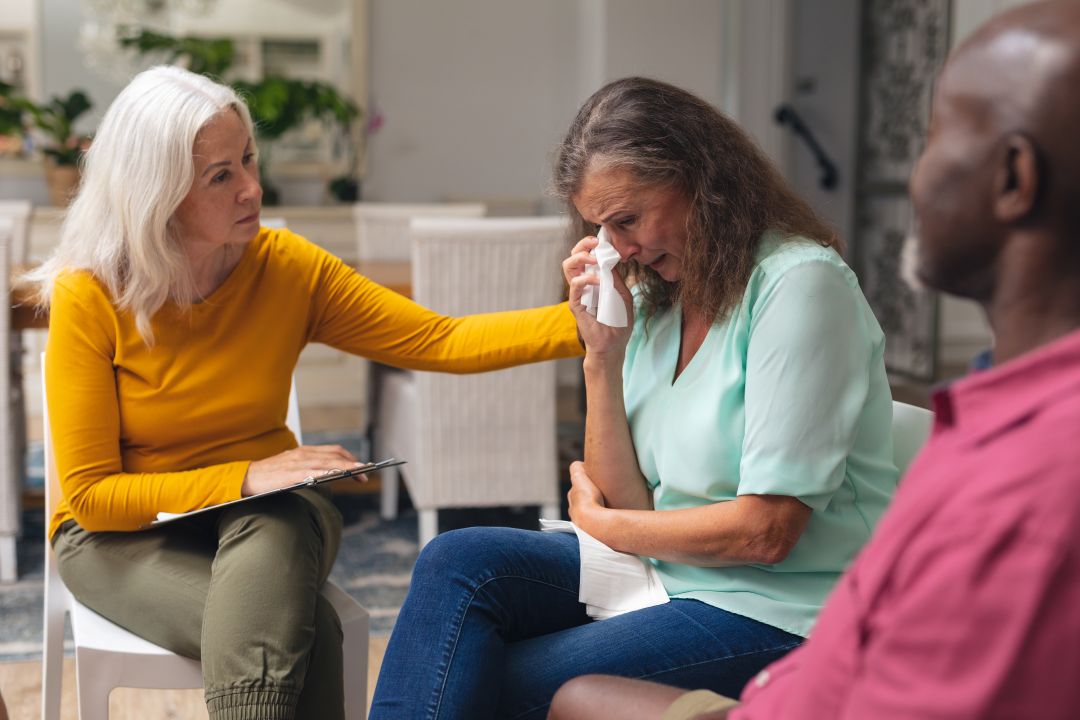Mother’s Day is a special day for many. It’s an opportunity to celebrate the unique and beautiful relationship between a mother and her child, or children.
However, not everyone feels that this is a time to celebrate. Those who have experienced the loss of their mother or a child means this day can be a reminder of that bereavement and grief. Celebrating Mother’s Day after loss is heartbreaking and can be difficult to navigate.
Losing a child is never easy on a parent, no matter what age they are. As a mother, grief can entail feelings of emptiness, denial, guilt, self-blame and anger. With time, you learn to cope, but certain events like Mother’s Day or your child’s birthday can trigger these emotions all over again.
If you’re looking for ways to deal with grief around Mother’s Day, hypnotherapy can bring relief.
With two decades of experience helping people recover from emotional pain and a negative state of mind, I can help you improve your mental wellbeing and strengthen negative subconscious thoughts.
Gentle Ways to Manage Grief on Mother’s Day
There is no wrong or right way to navigate Mother’s day after loss. However, we explore ways to deal with grief and depression in this blog.
1. Don’t Shy Away From Your Emotions
It’s normal to feel overwhelmed with emotions after experiencing loss. You may suppress your feelings around loved ones to avoid affecting their mood and being seen in a negative light, but try to be open with those closest to you.
Miscarriage depression, child loss or the passing of your mum can all evoke feelings of envy, jealousy or anger around Mother’s Day. This is completely normal.
Remember that your feelings are valid and this is a reflection of the injustice and unfairness of your loss. Try to avoid keeping these feelings bottled up. Whether you attend a support group, explore alternative therapy or talk to close friends, it’s healthy to talk about your emotions.
You don’t need to be strong and collected all the time. Letting out your emotions is a very effective way to deal with grief.
2. Express Your Feelings
One of the best ways to deal with grief is to talk about it. Talk with close family members, friends, partners, or your children and encourage open dialogue.
Seeking help from a therapist, psychologist, or hypnotherapist can be extremely helpful when grieving. These professionals provide a safe space without judgement, giving you time to explore your feelings. Sometimes, getting things off your chest is the best thing you can do when coping with grief and loss.
Part of my grief hypnotherapy is to encourage you to see your own inner strength and purpose, empowering you to make positive change. Get in touch to find out more.

3. Seek Support From People in a Similar Situation
Remember, you are not alone.
Mother’s Day after the loss of a child can feel really isolating. You may notice people celebrating with their families, which can heighten your feelings of pain and hurt.
When looking for how to deal with grief and depression as a bereaved mother, support can be found from other parents who have been in your place. Don’t be afraid to reach out and ask for support.
Finding a support group for grieving mothers is a great way to deal with grief. On Mother’s Day, when it can be especially challenging, try to spend time with those closest to you, encouraging a sense of solidarity.
4. Honour the Memory of Your Lost Family Member
If you’re grieving on Mother’s Day, a way to deal with these emotions is to honour their life. You can do this by hosting a celebration, and inviting people over to talk about fond memories. Whether grieving your mother, or an adult child, this changes the narrative and allows you to remember happy times.
Another way to honour your loved one is to visit their final resting place. Go alone or with others, bringing fresh flowers or other items to decorate the space. If your child or mother was cremated, visit their favourite place and take a moment to remember them.
Participating in workshops, retreats or art projects are other ways to remember a lost family member. It can feel easier to not mention their name, but on the contrary, saying their name and talking about them can be a positive step in your grief journey. If this feels too hard, perhaps you could start by writing them a letter or journaling.
Contact Susannah to Cope With Grief and Depression
Are you looking for ways to deal with grief on Mother’s Day? I’m Susannah, a clinical hypnotherapist who has helped many people through challenging times.
My hypnotherapy sessions will help you to identify and resolve negative thought patterns, encouraging you to celebrate both the past and the future. This enables you to live a calmer and more fulfilling life.
Whether you’re fighting depression, stress or low confidence, hypnotherapy is an effective, long-lasting solution.
Connect with me to learn more about the ways that I can help you.



 by
by